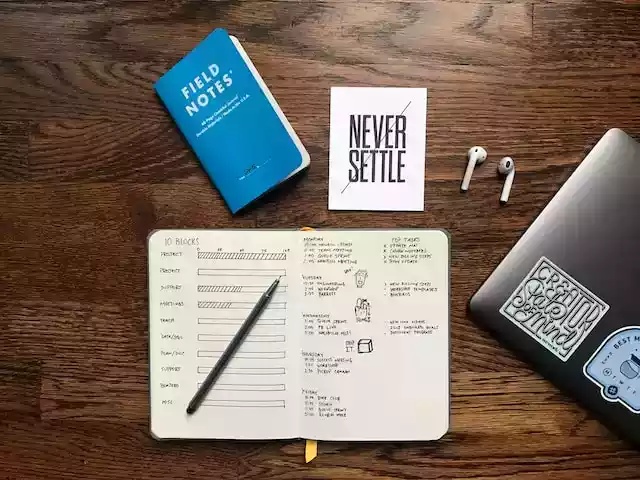How to study smart in engineering and have better grades without over stressing.

Over the years of been an engineering student, I have met some good medical and engineering students.
And I have learned from them some tactics and strategies that help them study better and have good grades without over stressing.
Here in this post, I will be sharing most of them with you so you can fast track your engineering journey and make it fun.
Aim to study for many hours but split it into chunks
We all know that engineering is not an easy field to study and you need lots and lots of time to study.
But the best way to study for long hours, is to split things up into small chunks.
Instead of studying for 3 hours straight, why not split the study section to 20 - 30 minutes and have a break of 5 - 15 minutes which results in studying for just 2 hours and having a break of 1 hour.
Why this technique works
It is based on an experiment performed on some students that studied for long hours straight and those that split their study section into small chunks.
Those that split their study section, ends up being those that retain most of what they have studied and even enjoying studying it.
While those that study for long hours straight tend to only recall what they learnt in the first 30 – 45 minutes and sometimes seems to be stressing.
Note
Do your best to make study an enjoyable thing to do but still, remember things get frustrating sometimes so just keep going.
Choose where and how you study “wisely”
Choosing an environment that is cool, calm, tidy and free from distractions is pretty much better to study because,
If you accustom yourself to study in that area, your brain will definitely register that and always put you in that study mode when you are set to study there.
So find a small place that is designated for studying which can be under a tree, a building or even inside your room.
Learn and understand concepts because engineering is full of abstractions
Each and every courses or subjects you will study in engineering is either going to somehow relate to each other or is completely not even related.
The case here is that no matter how small the course is; it will have some difficulty in it.
Course like engineering electromagnetics (or electromagnetic field) is dealing with waves.
Which in reality cannot be seen but can only be understood if we understand the fundamentals and the fundamentals can relate back to magnets that we play with or the wave of water in the ocean.
So it is highly remarkable and important to learn and understand concepts first even before memorizing formulas or learning facts.
The way you can approach understanding concepts includes -
-
Ask yourself why is the course or subject useful.
-
How does it really help or what problem it is meant to solve?
-
What thing do I really know well that can be used to relate what I am about to learn?
-
And even more questions that you can ask yourself.
Start to Study as early as possible
Studying early do not only help you learn concepts about stuff but also give you the serenity of the heart since you now know what and what you really don’t understand so later on you can find an answer to that.
But studying close to the exams is just you trying to stress out your brain and most time you might not be able to cope with it.
Cover each chapter as much as you can
This one also relates with what we have discussed earlier because if you study as early as you can then there is high chance of you covering up most of the chapters.
Study using study techniques or hacks
This is quite similar to understanding concepts by going back to the fundamentals. But this is actually you trying to use shortcuts or mnemonics.
Mnemonics are techniques used to fast track learning process and some examples are
-
Acronyms - like PEMDAS that stands for parenthesis, exponential, multiplication, division, addition and subtraction or even BODMAS and ROYGBIV (for the seven rainbow colors).
-
Visuals or imagery - this involves the use of images or visuals that you have seen before or know of, to relate some concepts.
-
Rhymes - this is even common among small children because that’s how they could recall the multiplications table or even the state and capital.
-
Splitting up - is a way of taking large information and break them up into pieces that can be recalled easily
like a phone number that is written as 07040402001 – can be recall as 070 (zero seven zero) 4040 (forty forty) 2001 (two thousand and one).
How to make what you learn to stick more
The common ways that people use to let them understand things better and fill up their own gaps in knowledge is by trying to
-
Quiz themselves
-
Teach others
-
Summarize or explain in simple terms or in their own words.
Because according to Richard Feynman,
Quote
If you cannot explain something in simple terms, you don’t understand it.
Study with groups
Studying in groups with intelligent minded people is effective. Because there are alot of things you might learn from them which if you are to do it alone can be difficult.
Know yourself
To close up the discussion, you need to really understand who you are because, you might be a person that loves to study early in the morning, after lunch or even late at night.
So choose what suites you the best and try to apply some of the tips we’ve discussed so far.
Remember not to over bored yourself by trying to apply each and every study guides, just pick one at a time.
Cheers tooabstracter 🎉, hope to see you excel in your career.




